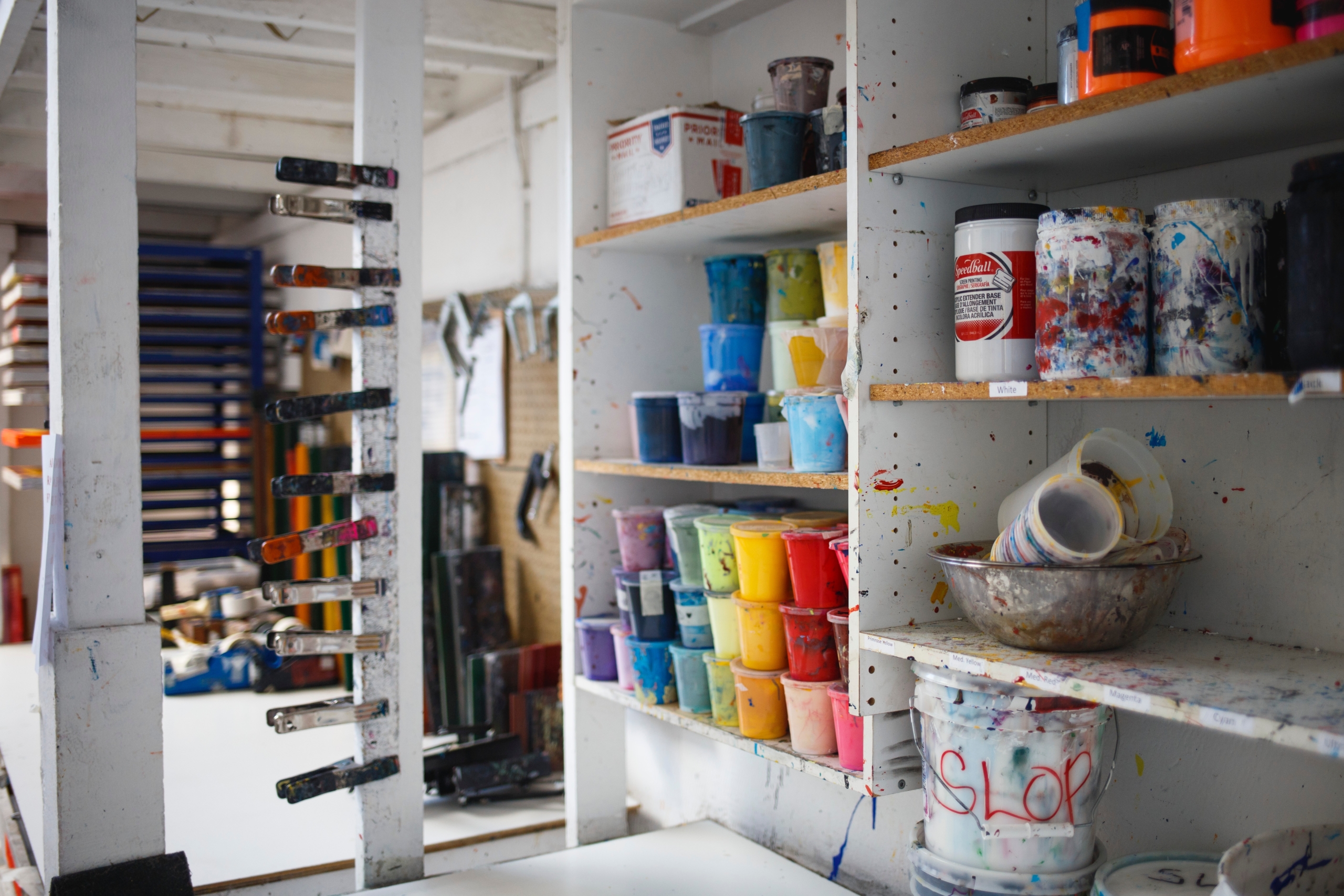The 8-step (anti) art school field guide
If I went back to Art School today, this would be my game plan
The 8-step (anti) art school field guide
If I went back to Art School today, this would be my game plan
March 11th, 2023
Read time: 3 minutes
You don’t need art school to learn the craft and get a job in motion/video. Online resources today are endless, relatively cheap, and very high quality.
Important disclaimer:
This is what I would do if I went back to art school today.
- It aligns with my personal creative career goals.
- It is not my advice to you, reader, because I don’t know what you want out of life.
But maybe it can spark some ideas, a little out-of-the-box thinking, and possibly even spur someone to take action.
Dear me,
1. Relax
You’re going to figure this shit out.
- The industry is constantly changing, which means you can’t go wrong as long as you’re always moving forward.
- Whatever path you take will bring you somewhere uniquely yours.
2. Don’t go without a clear mission
The goal is not a degree—because those things aren’t very relevant in the working world. Instead, treat art school as your personal production house.
Your mission: Make cool shit. Get director-level experience.
- Something to launch your career or take it to the next level.
- A personal project that requires more resources than a single person can generally muster (probably a short film or series of them)
Start with story, treat it like a pitch.
- Flesh out several concepts/stories. Pretty images can’t save bad stories.
- Consider making an adaptation of something licensed under Creative Commons, or reach out to a writer who might have something
- Take time to figure this out before applying—school time should be reserved for production as much as possible.
- Your project is your ticket. (see #4)
3. Find your audience
Build in public (online). Even a small following will generate buzz for the project and your personal brand will begin to sprout.
- Always be a resource.
- It will make the next step wayy easier. Be someone the school would pay to attend—because it makes them look good and because you will boost other students’ experience. (see #4)
- But also, starting to network and put yourself “out” “there” as soon as possible will help your career take off.
4. Get in for free or cheap
Art schools don’t have sports teams to generate revenue. Instead of athletes, they cultivate talent and prestige to attract more paying customers. They do this with scholarships.
👉 Can you develop a project that the school would pay to have their name on? That faculty would be excited about?
- What makes you uniquely positioned to tell this story?
- What makes this school uniquely positioned to help bring it to life? A specific facility or faculty member?
- Maybe it uses cutting-edge tech in a unique way, mobilizes a community, or reveals an unseen perspective…
- Have a plan for beyond production (festival runs? marketing?)
👉 Make this project your purpose, and put it at the center of your admissions application/essay. Don’t get too deep into specifics. Talk big picture.
Check out College Essays that Made a Difference, by The Princeton Review.
- Thanks in part to this book, my wife’s recent admissions essays received great responses + several scholarship offers including: “What does it take to convince you to come to McGill?” (read that in a French accent)
- Sob stories don’t work. Too many people have them, and they’re all intense.
- It’s about having a purpose. Few people have that. What’s your reason to be at this school?
Art schools give scholarships to students with promising artistic abilities because they are making measured gambles that some of these talented recipients will accomplish noteworthy things and make the school look good.
Put yourself in the school’s shoes. More prestige = more revenue.
5. Leverage the school’s resources
► Equipment and facilities
- Free studio space, gear, computers, software…
► Your colleagues (other students)
- Their knowledge and network
- Free talent as long as it can go toward a grade
► The faculty
- Make friends with the faculty—they are usually working professionals with a ton of experience and an elite network.
- Schools often expect them to continue producing notable work, so it’s a win-win.
- If you get the support of the professors, you’ll get more support from the students to complete the project
6. Phone it in on the grades
- Grades are mostly irrelevant, assignments are flexible, and “complete” is subjective.
- Work with the professors to manage expectations.
- Don’t finish work that wastes your time. Just take it far enough to check the box and move on.
7. Lift up your peers
Whatever “leverage” you get by using other students for help, make sure you return it two-fold.
- It’s not a zero-sum game in the working world.
- You’ll get infinitely farther supporting each other than trying to “beat” each other.
Stay the hell away from negative people. Even if you can remain optimistic, they’ll damage your reputation.
8. Operate like a professional
As you hone your craft, measure progress only against yourself. If you get a little better each time, you’re on the right track. Be proud.
- But don’t set your goals according to where the school or your peers expect you to be.
- Look at the pros, the artists, animators, directors, etc who you admire most and strive straight for the top.
The sooner you shift your mindset from student to professional, and hold yourself to those standards, the quicker your work will progress.
